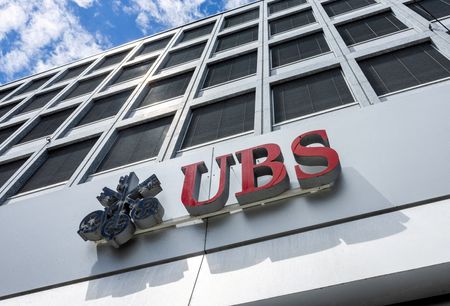By Joan Faus
BARCELONA/MADRID (Reuters) -As factories, stores and hotels across Spain and Portugal gradually returned to normal on Tuesday after a huge blackout the day before, business associations and companies began counting the cost.
Spain’s main business lobby CEOE estimated the outage would shave 1.6 billion euros ($1.82 billion), or 0.1%, off gross domestic product, noting it could take oil refineries a week or more to resume their operations fully, and that some industrial ovens had been damaged.
The meat industry estimated losses of up to 190 million euros as fridges lost power, among other factors. The blackout lasted more than 12 hours in some areas of Spain.
On Tuesday, most food stores were operating normally, the sector’s association ANGED said, but were still assessing how much of their produce had gone bad or how much business they had lost when card payment systems went offline and ATMs were out of order.
Many people rushed to buy water, canned food, flashlights, and battery-powered radios to stay informed, but not everyone could find cash.
The Bank of Spain said payments by card resumed on Tuesday and ATMs were working.
As industry faced some of the biggest challenges, at Volkswagen’s plant in the Navarra region, where 4,600 people work, output only resumed at 2.30 p.m. on Tuesday. The factory had lost production of about 1,400 cars since Monday, a company spokesperson said.
Volkswagen’s Spanish brand SEAT also said output at its Barcelona plant, where around 14,000 people work, was not fully restored to normal operations after power supply returned at 1 a.m local time.
Other sectors, such as Spain’s all-important tourism industry, were largely unscathed.
“At the moment, we’re not receiving any significant reports in terms of cancellations,” Jorge Marichal, chairman of Spain’s hotel association CEHAT, said, although that the telecommunications outage had created a “very complicated situation”.
“Many guests took refuge in hotels. We had an adequate occupancy and we were even able to help some public agencies that requested assistance in accommodating people,” he said.
Hoping for a quick solution to the blackout, some companies kept staff on the premises for hours, while others, such as industrial manufacturer Thune Eureka in northern Spain, sent workers home early in the blackout.
Its president, Adrian Garcia Aranyos, said his head of IT had prior experience supervising power grid maintenance in Venezuela and that had given the company an unexpected edge.
“He knew from the first moment that this was going to be at least eight hours… Thanks to him we were able to make an agile decision after an hour with no power,” he said.
($1 = 0.8771 euros)
(Reporting by Joan Faus, Aislinn Laing, Jesus Aguado, Corina Pons, Editing by Andrei Khalip and Barbara Lewis)













